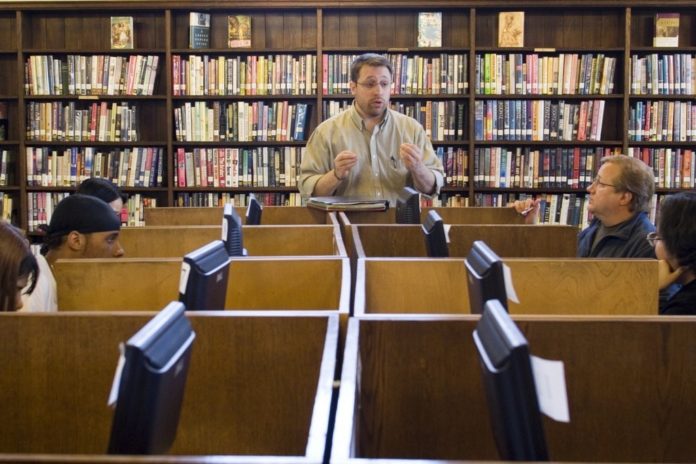
An ongoing struggle over the financing and management of the Providence Public Library has left the future of neighborhood branches in question.
The problem has been building since 2005, though PPL Director Dale Thompson said the privately owned library has been hoping to secure a contract with the city to operate the branches for more than 20 years.
In the fall of 2005, the Providence City Council attempted to pass an ordinance that would require the library, in exchange for city funding, to place city representatives on the library’s board. The board currently has only one city representative on its 30-member board.
The library refused to add more city representatives.
At the same time, the library’s board was discussing the governance of the branches and the library’s budget deficit. This included debating whether to cut branches and services.
Then in April 2006, Mayor David N. Cicilline sent Neil D. Steinberg, former chairman and CEO of Fleet Bank-Rhode Island and now vice president for development at Brown University, to look into the situation at the library.
In his July 2006 report, Steinberg stated that the city and library should come up with a memorandum of agreement to spell out exactly what the city wanted in exchange for continued financial support.
That has not happened, and according to library officials, until that contract is in place, the future of the branches will remain unclear.
“Right now we’re talking with the city about options that are available to the city as it makes its decision,” Thompson said. “Last year we collaborated with the city on a strategic plan for neighborhood libraries and then to give the city time to consider implementation steps, we have been operating the branches this year at the city’s request. But that is coming to an end as of July 1, so right now we’re waiting to see what decision the city is going to make.”
The four options the library has given to the city are to have the city take over the complete operation of the branches; create libraries that are run by neighborhood groups; have the Municipal Library Services Board, a nonprofit not affiliated with the city or the library, operate the branches, or have the city contract with the library “or another provider” to operate the branches.
Or the city could step up its funding to the library even more – it has already added $300,000 to its contribution this year – and provide the $5.04 million that library officials say they need to run the branches without cutting hours, locations or services. Currently, after its state match of $750,000, the city is providing $4.05 million.
And though Thompson wouldn’t come out and say what will happen if the city doesn’t choose one of those options, the library’s “transition team” is making it clear that the threat of closure is on the table.
Notices have been sent out to 67 employees letting them know that they could be laid off in 60 days, according to The Library Reform Group, including one to the coordinator of branch activity, and on April 26, the library board voted to allow the closure of the branches.
At a May 4 meeting, library officials also handed out a schedule for what needs to be done at a branch in order to close it.
“Should talks break down with the city completely or anything else isn’t set up, the worst-case scenario is where everything has to shut down,” said Tonia Mason, a library spokeswoman. “That’s why these notices have to go out, because if that would happen, the board would want that option.”
Cicilline, for his part, says he will “continue to work towards protecting” the branches.
“My position is that the public-private partnership is an important partnership worth preserving,” he said in an interview with the Providence Business News. “We want to continue the discussions and clarify and strengthen the relationship. We, the board and the city, are working very hard to work through this process, and it’s essential we reach a resolution, because the libraries are essential to the vitality and health of this city. The end result will hopefully produce a stronger library system.”
Mason said it’s also possible that the board would choose not to close any branches even if the issue isn’t resolved in time.
“They might decide to suck it up and run things anyway,” she said. “But what they voted for is the option to shut down operations.”












